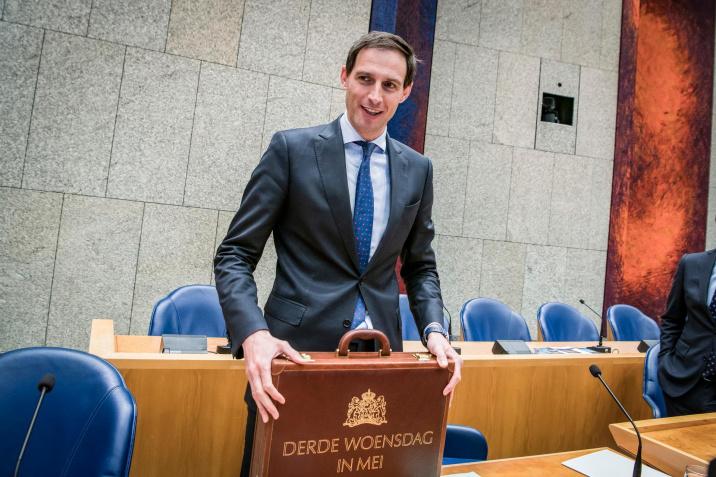Accountability Day: “You can learn to evaluate”
With the official handover of the government’s financial reports to the President of the House of Representatives, Dutch Finance Minister Wopke Hoekstra officially opened Accountability Day on Wednesday 15 May 2019. This annual event, also called the “flip side” of Budget Day, marks the beginning of the months-long process during which the House checks that the government is actually implementing its plans.

This is the twentieth time that Accountability Day has been held, President Khadija Arib reminded members during the presentation ceremony. As on Budget Day, she received a despatch box – on this occasion containing the central government’s 2018 Annual Report and Annual Financial Report. Hoekstra brought this to the House this morning. Another parallel with the budget tradition is that Accountability Day always takes place on a set date: the third Wednesday in May.
Spending
Also on Accountability Day, the president of the Netherlands Court of Audit submits a report assessing government policy to the House. Arno Visser, the current president of the Court of Audit, said after the handover this morning that the effects of the investments made by the current cabinet since it took office in October 2017 are not yet fully visible. Hoekstra responded that not all the allocated funds have yet been spent.
Plain language
The official formalities were preceded by a working breakfast for MPs. At this, columnist Japke-d Bouma impressed upon them the need to use plain language in the accountability debates they will be holding over the coming months. And Tjibbe Joustra, former chair of the Dutch Safety Board, drew a parallel between the work of that body and Accountability Day: both processes reveal errors. In his view, it is also important that politicians admit this, otherwise “nobody learns from these mistakes”.
Critical questions
The House is to discuss the reports in the next few weeks. On Monday 20 May a hundred students from colleges of further education are coming to The Hague to help members scrutinise the documents and formulate critical questions for their debate the following day with Prime Minister Mark Rutte and Finance Minister Hoekstra. This is the third time that the assistance of a citizen panel has been enlisted. The driving forces behind students’ contribution are MPs Joost Sneller (D66) and Renske Leijten (SP), said President Arib. During the working breakfast, Sneller emphasised that it is important in politics not only to look ahead, but sometimes to look back as well. “You can learn to evaluate,” he said.